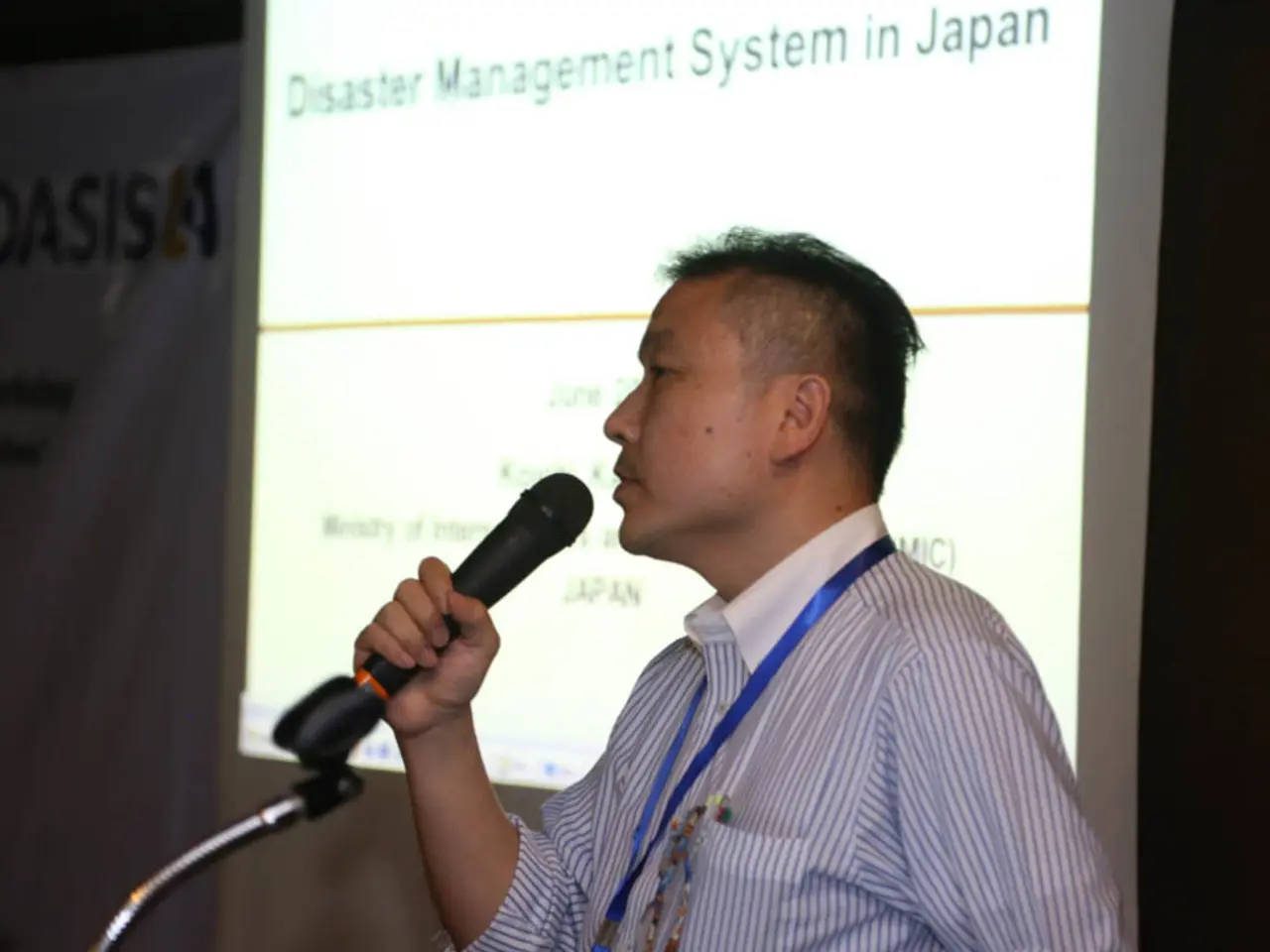Pacific earthquake near Russia's Pacific shore initiates tsunami alerts - East Coast of Russia Experiences Earthquakes Prompting Tsunami Advisories
Here's a news article based on the provided bullet points:
Powerful Earthquake Strikes Off Russia's Kamchatka Peninsula
On July 30, 2025, the world witnessed a significant seismic event as an earthquake of magnitude 8.8 occurred off the coast of Russia's Kamchatka Peninsula. This earthquake, tied for the sixth-largest ever recorded, is the strongest since the 9.0 magnitude earthquake in Japan in 2011[1][3][5].
Impact in Russia
The epicenter of the quake was approximately 130 kilometers off the sparsely populated coast of Kamchatka, but it still caused noticeable effects. The city of Petropavlovsk-Kamchatsky, with a population of 180,000, experienced buildings swaying, power outages, and mobile service failures. Although several people sought medical help, no serious injuries or deaths were reported[1]. The quake also triggered multiple aftershocks, including one as strong as 6.9 magnitude[1].
Impact in Japan
The earthquake prompted tsunami alerts, causing disruptions in various services. Ferries between Hokkaido and Aomori, as well as between Tokyo and nearby islands, were suspended. Local train services were also affected, and Sendai airport briefly closed its runway. Despite the alerts, no abnormalities were reported at nuclear power plants, including the Fukushima Daiichi site where the 2011 disaster occurred. About 4,000 workers at Fukushima temporarily sheltered while monitoring safety remotely[1].
Impact in the USA
Tsunami alerts extended to Alaska, Hawaii, and the U.S. West Coast. Despite the large quake and tsunami warnings, the U.S. managed to avoid major tsunami impacts or damage[4].
Tsunami Heights and Affected Coasts
In historical context, the 1952 Kamchatka earthquake of similar magnitude generated 9.1-meter (30-foot) waves in Hawaii. For the 2025 event, while tsunami alerts affected multiple Pacific coasts, no reports indicated tsunami wave heights reaching destructive levels comparable to 2011. Russian and Japanese coastal areas, especially in Kamchatka and northern Japan, were on alert and disrupted by the warnings, but no major tsunami damage was reported[1][3].
In summary, the 8.8 magnitude Kamchatka earthquake in 2025 was a major seismic event with significant regional disruption and tsunami alerts across the Pacific, but it caused no serious injuries or major tsunami damage on the coasts of Russia, Japan, or the USA[1][3][4].
[1] BBC News. (2025). Kamchatka earthquake: Strongest since Fukushima disaster. [online] Available at: https://www.bbc.co.uk/news/world-asia-58116131
[2] USGS. (2025). Earthquake - Kamchatka, Russia. [online] Available at: https://earthquake.usgs.gov/earthquakes/eventpage/us2025kyky/
[3] The Guardian. (2025). Kamchatka earthquake: Tsunami warnings issued after 8.8 magnitude quake in Russia. [online] Available at: https://www.theguardian.com/world/2025/jul/30/kamchatka-earthquake-tsunami-warnings-issued-after-88-magnitude-quake-in-russia
[4] CNN. (2025). Kamchatka earthquake: Tsunami warnings issued for Alaska, Hawaii and US West Coast. [online] Available at: https://www.cnn.com/2025/07/30/us/kamchatka-earthquake-tsunami-warnings/index.html
[5] National Geographic. (2025). Kamchatka Earthquake: What We Know So Far. [online] Available at: https://www.nationalgeographic.com/science/article/kamchatka-earthquake-what-we-know-so-far
- The Commission, in response to the catastrophic Kamchatka earthquake, is considering the adoption of a proposal for enhancing the early warning systems for earthquakes and tsunamis in the European Union, which could lead to more efficient scientific monitoring of seismic activities.
- Amidst the general news coverage of the Kamchatka earthquake, several medical professionals have expressed concern about the potential long-term effects of the seismic event on individuals who suffered from medical conditions exacerbated by the ensuing chaos.
- With the focus mostly on earthquakes and tsunamis, some sports enthusiasts might be wondering about the status of various athletic events scheduled in the affected regions, while others ponder over the impact of the climate shift, brought about by the seismic activity, on the weather patterns around the globe.







